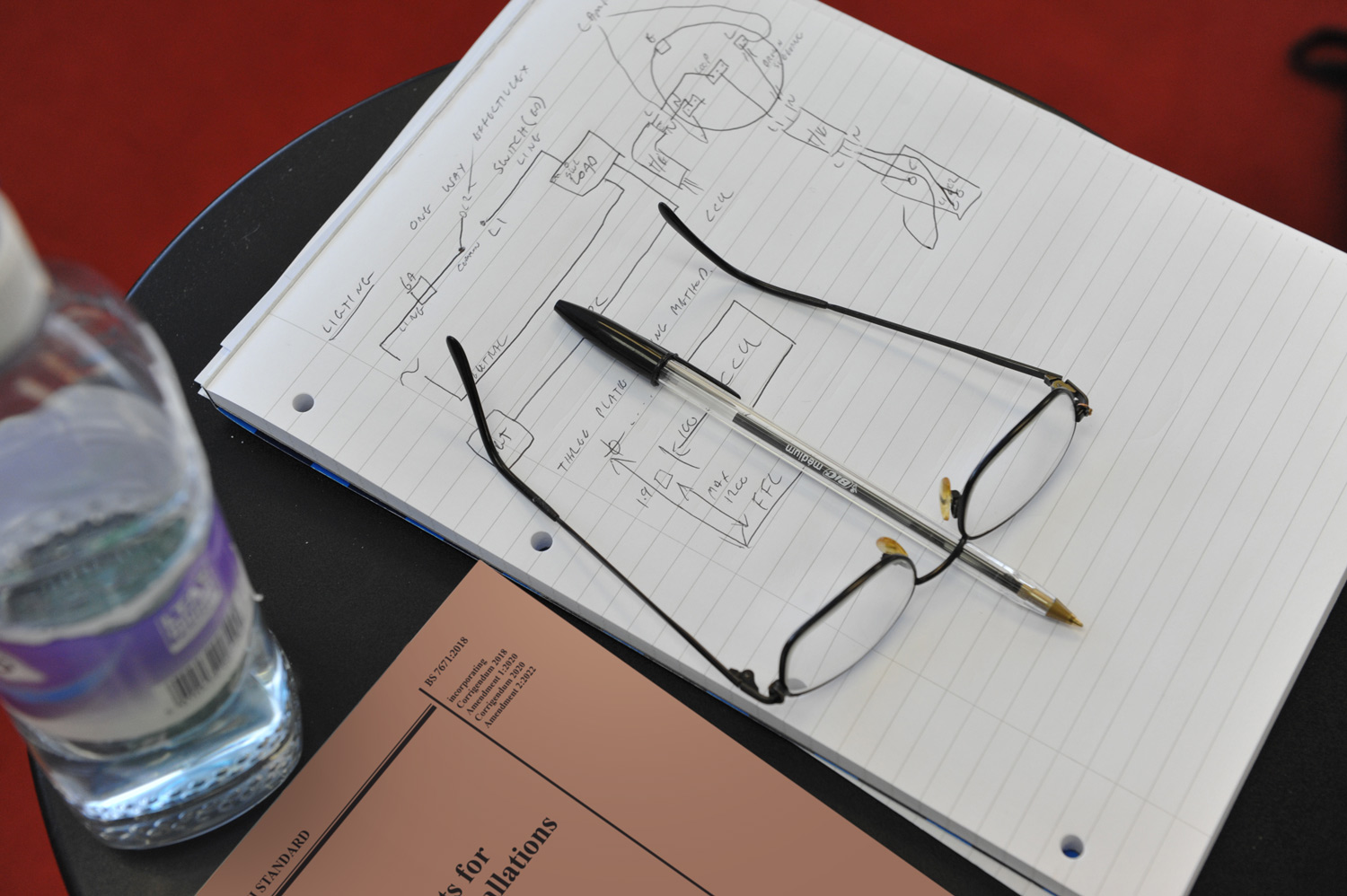January 2021 update
During Lockdown 3.0 electricians and other tradespeople are considered keyworkers and can continue to provide essential maintenance & repair work in people’s homes. The Government has issued some updates in relation to the safety working guidelines for the construction industry:
- Whilst carrying out a risk assessment, particular notice should be given to tenants and homeowners in higher-risk categories (see section 2.1)
- Further updates state that “Clinically extremely vulnerable individuals” shouldn’t be working or travelling to attend work during the national lockdown including working in other people’s homes
The full guidance document can be found in the “Working Safely During Lockdown” section of the Gov.uk website. Notable points in the guidance document are summarised further below.
Results from our January 2021 poll
We asked our social media community the following question:
“Tradespeople, are you working during Lockdown 3.0” and the results are in. 85% of electricians & tradespeople who’ve taken part in our survey confirmed that they are working during this lockdown.


In April 2020, the Cabinet Office confirmed that construction workers can continue to go to work during the coronavirus pandemic in accordance with Public Health England safety guidance. Both domestic and commercial electricians are encouraged to follow strict covid-19 guidance compliance in order to stop the spread of coronavirus and to keep themselves and others safe. The key message is to continue to work if it is safe to do and follow social distancing wherever possible. There are some exceptions to this outlined below and it is clear that social distancing is not always possible in a construction environment.
Guidance for domestic electricians
Last month, the Government issued a new guidance doc (which you can view here) which makes specific reference to tradespeople working in people’s homes. Section 2 of the guidance notes are summarised below:
- Work carried out in people’s homes can continue, provided that the tradesperson is well and has no symptoms
- No work should be carried out in any household which is isolating
- No work should be carried out by a tradesperson who has coronavirus symptoms
- On entering the home you should wash your hands for 20 seconds or use hand sanitiser if no facilities are available
- When working in a home you should remain 2 metres away from occupants unless your work is essential for their safety
Guidance for Site & Commercial Workers
When it comes to building sites as you can imagine there is much more detailed guidance available. The Construction Leadership Council has published a detailed document covering all the precautions that must be taken to ensure safe working. Your employer should have read this document and take the appropriate action. It is highly advisable that you as a construction worker also read the document. Sites which fail to observe this set of guidance may be asked to shut down. You can read the full document here.
We have summarised some of the key points below:
- Self Isolation – Following Government Guidelines on self-isolation. If you are at risk, live with someone who has symptoms or have symptoms yourself you should not travel to work and should self isolate. This means 14 days of a house member has symptoms and 7 days if you have developed symptoms.
- Social distancing – Whenever possible social distancing should occur. However, the guidelines do state recognise that this is not always possible. They do state that if not possible to distance that workers should minimise the number and frequency of tasks that require workers to be closer together. They also suggest keeping to specific teams to reduce the chances of spreading the virus.
- Travel – Wherever possible workers should travel in isolation and avoid public transport. Where this is not possible workers should always travel with the same individuals.
- Driving at work – The vehicle should be regularly cleaned between use. If the vehicle has to be shared it should be used by the minimum number of people and if possible the same few individuals. Drivers should wash hands before and after using the vehicle and keep windows open if possible.
- Site Access – Reduce the number of visitors and implement staggered starts and finish time to avoid congestion. Allow plenty of space (min of 2 meters) between all workers and all times and any driver should remain in their vehicle wherever possible.
- Handwashing – Regular breaks for handwashing are encouraged as are extra washing facilities and hand sanitisers
- Toilet facilities – Restrict the number of people using toilet facilities at any one time. Increased cleaning and avoiding portaloos if possible.
- Canteen / Rest Areas – Areas should be increased in size if possible and regularly cleaned. Workers should be encouraged to provide their own packed lunch and refillable water bottles.
Overall the document is extremely thorough and makes a lot of common sense proposals mainly centred around careful planning, extra cleaning and trying wherever possible to implement social distancing measures.
Are you looking to gain additional electrical qualification during a lockdown? Or maybe looking to re-train as an electrician?
Tradeskills4U is now providing quality Virtual Classroom Training courses. For more information or to register your interest please visit our contact us page or call us on 0800 856 4448.




















